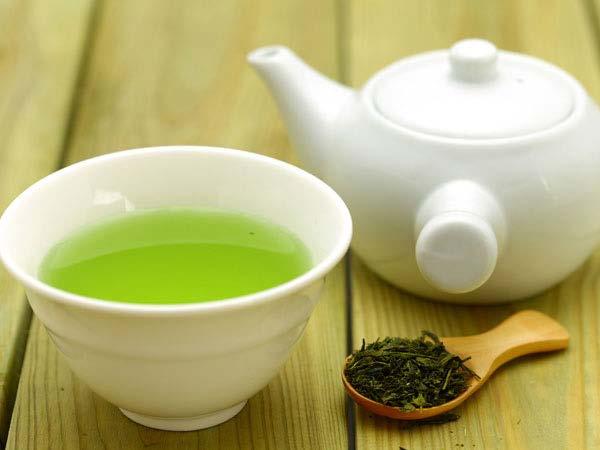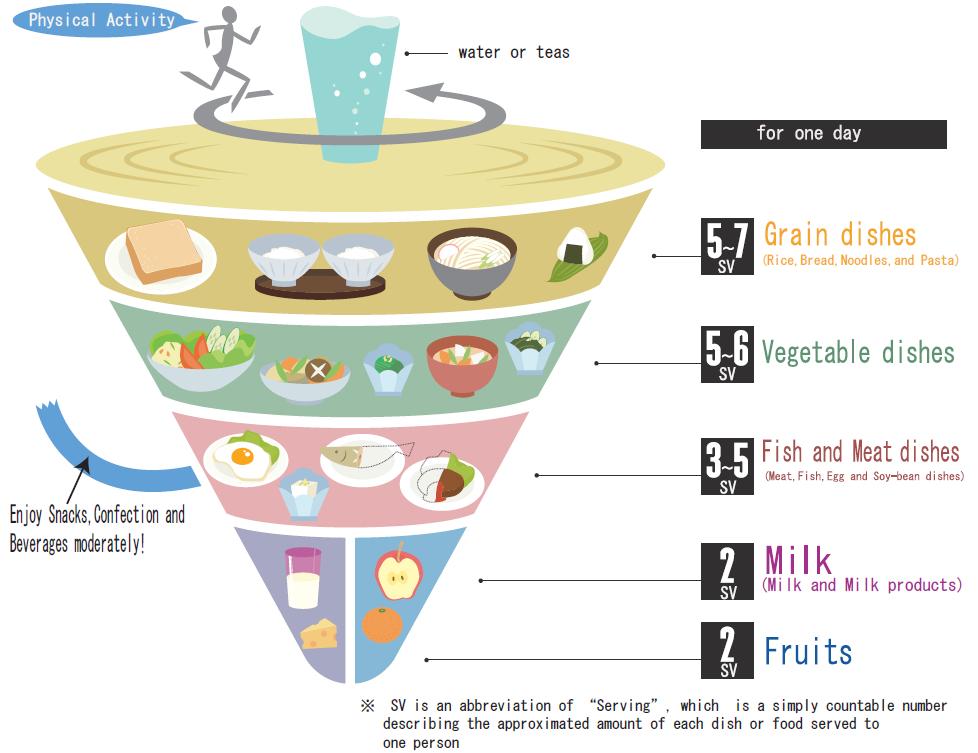
7 minute read
Antioxidants
Why Consumption of Dietary Antioxidant Supplements May Not Work? by Chang Sui Kiat
There have been accumulating evidences that body, especially when consumed in large doses [7]. suggest the consumption of large doses of Furthermore, most supplements do not prevent dietary antioxidant supplements does not have non-communicable diseases (NCDs) or death [8]. signi!cant medicinal e"ect and could be harmful in #is statement is especially true for healthy general some cases. #is is because the e"ect of free radicals population with no obvious evidence of nutrient in the development of various chronic diseases is still de!ciencies [7, 9, 10]. #erefore, consumption of unclear. Furthermore, the natural antioxidant capacity antioxidant supplements appears to be redundant. and the immune system of the human body could #e general public has the perception that free radicals counteract the actions of dietary antioxidants. #e or ROS are bad due to their association with ageing, dosage of antioxidant in dietary supplements may also cancer and neurodegenerative diseases e.g., dementia be inappropriate. #e consumption of food naturally and Alzheimer’s disease. Three factors have been rich in antioxidants, such as fruits, vegetables and proposed to explain on the lack of bene!cial e"ects grains should be promoted instead of the consumption of antioxidants in humans. of dietary supplements.
Advertisement
Antioxidant supplementation, either in tablets or A common misconception from the general public is in food per se, is based on the notion that reactive that free radicals or ROS are bad, whereas antioxidants oxygen species (ROS) and other must be good. Indeed, ROS are free radicals contribute to many human diseases by causing “Over-consumption bad as they contribute to ageing, cancer and neurodegenerative oxidative damage, and that decreasing oxidative damage will of antioxidants diseases such as dementia and Alzheimer’s disease [7, 9, 10]. help to prevent those diseases [1]. #erefore, the notion that may down#ere are several reasons why these antioxidants fail to show bene!ts ‘antioxidant is good - the more antioxidants we take, the better regulate important in humans. our health will be’ is common among the general public. #e endogenous Firstly, ROS may not be the main causes in some NCDs. We have supplements and nutraceutical industries use these concepts antioxidants and a well-balanced pool of ROS and antioxidants that allows some to market their products, often portraying them as safe, healthdepress parts of the ROS to perform their useful physiological functions while providing molecules to be eaten as mega-dose supplements. Hence, immune system” minimising oxidative damage (Figure 1). #is can be exempli!ed antioxidant-enriched food, by the role of ROS in killing drinks (typically rich in sugars and colouring agents), pathogens as part of the human innate immune cosmetics and supplements are being advertised system [10, 11]. In addition, it has been reported that extensively. stem cells need some ROS to function properly, but excessive amount of ROS can impair their function Scientists are now ba&ed by latest research !ndings [12]. advising against routine consumption of antioxidant or dietary supplements. Numerous clinical trials showed #e overall antioxidant defense in our body depends no bene!cial e"ect of multivitamin or multi-mineral heavily on endogenously-synthesised antioxidant supplements, folic acid and vitamin B supplements on enzymes such as reduced glutathione (GSH), catalase all-cause mortality, cancer, cardiovascular diseases and and superoxide dismutase (SOD) instead of dietcognitive impairment [2-5]. Moreover, it was found derived antioxidants (Figure 1) [10, 11]. #erefore, it that Ƣ-carotene, vitamin E and vitamin A supplements will be more e"ective if the antioxidant defense system may be associated with higher all-cause mortality is stimulated with some weak or mild pro-oxidants [6]. #is happens because Ƣ-carotene, vitamin E and or ROS, which will in turn stimulate the level of our vitamin A may exert pro-oxidant activities in human own antioxidants, such as GSH to !ght infections [1,
(i) Moderate levels of ROS are essential for health
7, 9]. In relation to that, ROS is the culprit for the development of cancer although ROS also exhibits anti-cancer e"ects [13]. In the same vein, exercise is well known to be bene!cial for humans because it is a mild pro-oxidant challenge that stimulates bene!cial adaptation in skeletal muscles [14].
#erefore, basal levels of pro-oxidants could be better for our health than huge amounts of antioxidants. Over-consumption of antioxidants may down-regulate important endogenous antioxidants and depress parts of the immune system or the normal cellular protective responses to oxidative stress.
(ii) Physiological sensitivity to dietary antioxidant
It is possible that only patients with high levels of oxidative damage or those whose diet and lifestyle are in poor conditions will respond to antioxidant supplementation [11]. It is also important to note that those antioxidants are more e$cient in decreasing oxidative damage in animal models like mice or rabbits than in human patients [1, 9-11]. It seems that human antioxidant defense system resists modulation by dietary antioxidants, while the laboratory rats and rabbits appear more sensitive to administered dietary antioxidants.
(iii) Doses of dietary antioxidant matter
#irdly, the doses of administered dietary antioxidant may be incorrect. #e dosages of nutrients in the form of supplements often exceeded the recommended daily allowances (RDA) [15]. #ere is evidence that lower doses and/or mixtures of antioxidants demonstrated more benefits than higher doses of single agents [10]. For example, consumption of foods rich in vitamin C was shown to decrease oxidative damage physiologically whereas the intake of vitamin C alone did not [16].
Antioxidants from organic sources
Consumption of fruits, vegetables and grains help maintain good health and delay disease occurrence. #e intake of 3-5 servings of fruits and vegetables daily would protect against NCDs like heart disease, cancer and diabetes. This happens because fruits and vegetables are chemically complex, where the health bene!ts could arise from the additive e"ects of many compounds or mixtures of components present, including vitamins, minerals, !bre, phenolic compounds and flavonoids [15, 16, 18]. This mechanism is called synergistic actions where nothing happens in isolation in complex biological systems [7].
Isolating individual nutrients making them into quantity for human consumption to imitate the nutritional benefits from whole foods might not be a good idea after all. #is is because the isolated nutrient may either lose its bioactivity or may not behave the same way as the same compound in whole food [18]. More importantly, plant foods like fruits and vegetables are low in ‘calories’, the term of which the people is most concerned about. So, why not take more fruits and vegetables for our good health?
An understanding of why dietary antioxidant supplements do not completely benefit human health remains a target of research in the scienti!c !eld. In conclusion, consumption of natural foods
containing antioxidants, such as fruits, vegetables and grains, coupled with regular exercise are su"ce to maintain good health and prevent the onset of NCDs.
Note: Find out more about various types of dietary supplements on http://fnic.nal.usda.gov/dietarysupplements, the website of Food and Nutrition Information Center, USDA.
REFERENCES
[1] Halliwell (2012) Nutr Rev 70:257-265 [2] Briancon et al. (2011) Intl J Epidemiology 40:1605-1616 [3] Fortmann et al. (2013) Ann Intern Med 159:824-834 [4] Kesse-Guyot et al. (2011) Am J Clin Nutr 94:892-899 [5] Lamas et al. (2013) Ann Intern Med 159:797-804 [6] Bjelakovic et al. (2013) J Am Med Assoc 310:1178-1179 [7] Halliwell (2009) Free Radical Bio Med 46:531-542 [8] Gahche et al. (2011) Natl Center for Health Statistics [9] Halliwell (2012) Brit J Clin Pharmaco 75:637-644 [10] Halliwell (2011) Trends Pharmacol Sci 32:125-130 [11] Gutteridge et al. (2010) Biochem Bioph Res Co 393:561-564 [12] Juntilla et al. (2010) Blood 115:4030-4038 [13] Halliwell (2007) Biochem J 401:1-11 [14] Jackson (2011) Antioxid Redox Signal 15:2477-2486 [15] USDA & HHS (2010) Dietary Guidelines for Americans [16] Halliwell et al. (2005) Am J Clin Nutr 81:268S-276S [17] John et al. (2002) Lancet 359:1969-1974 [18] Liu (2003) Am J Clin Nutr 78:517S-520S
ABOUT THE AUTHOR
CHANG SUI KIAT (SHAWN) is a PhD candidate (Nutritional Sciences) who have submitted his PhD thesis under the sponsorship of Biasiswa Yang Di-Pertuan Agong. His research interests include bioactive food components and nutritive qualities of food that advance and impact the understanding of human health. As a graduate nutritionist and a life member of Nutrition Society of Malaysia (NSM), he is involved in the health promotion and screening programs, such as Nutrition Month of Malaysia and World Digestive Health Day organised by NSM and Ministry of Health annually. Find out more about Sui Kiat at http://www.scientificmalaysian.com/ members/suikiatchang/
FACTS & FIGURES
In 2014, Japanese was listed at the top of the overall life expectancy (84.6 years old) worldwide according to World Health Organization. Earlier this year, Office for National Statistics (UK) reported that Japanese diet rich in vegetables, green tea and raw fish as some of the keys to longevity.
The Japanese Food Guide Spinning Top was introduced in 2005 by the Japanese Ministry of Health, Labor, and Welfare and the Ministry of Agriculture, Forestry, and Fishery to promote healthy diet as follows (Source: www.mhlw.go.jp):

Photo: Asha/boldsky.com








